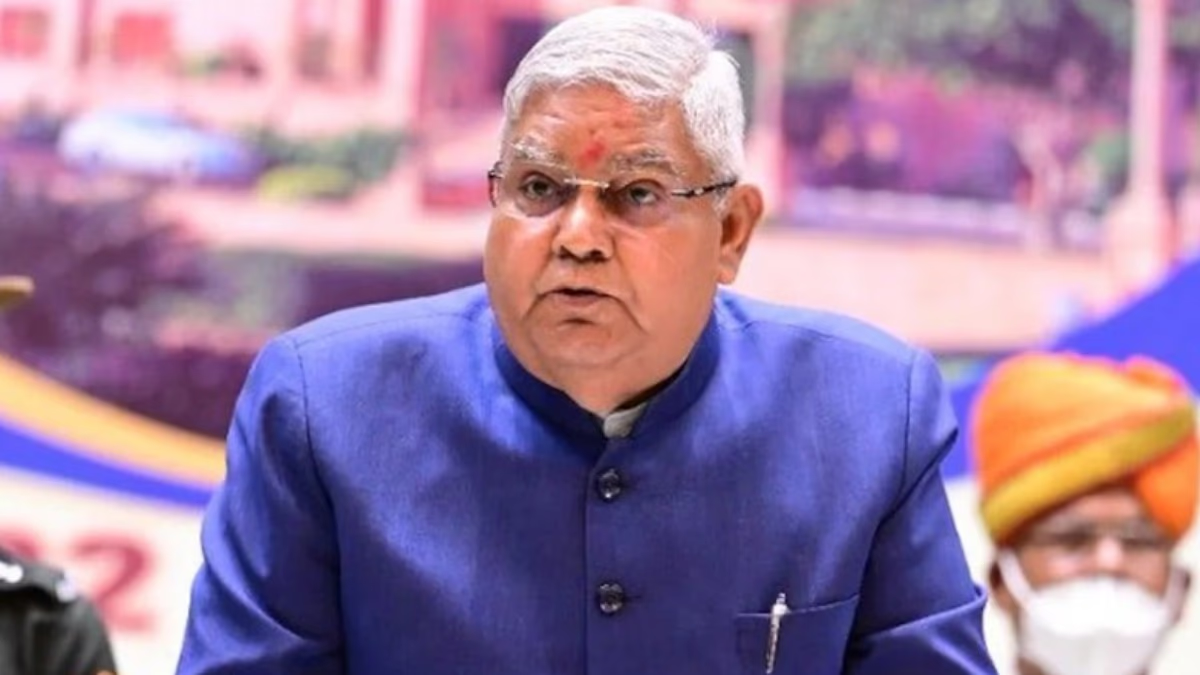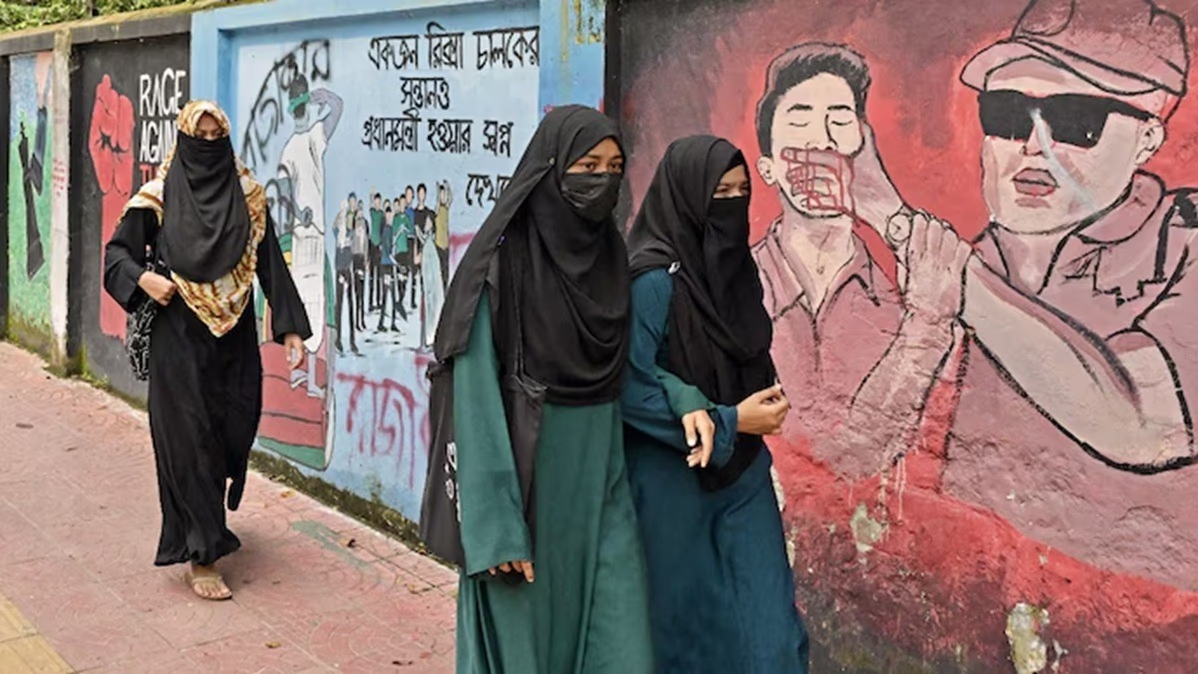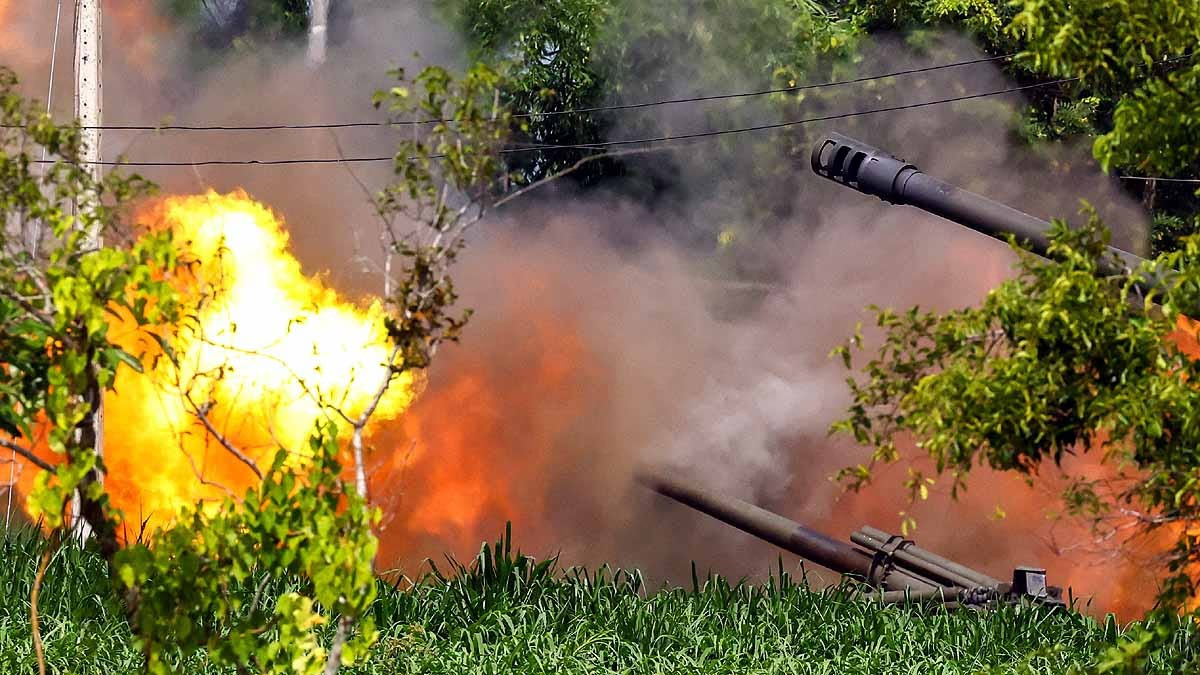Life resembles a turbulent river, always flowing and changing course. Sometimes it takes us to new heights, while other times it pulls us back. As Shakespeare once penned in his play 'Julius Caesar', 'There are moments in life like high tides in the sea that, if seized, can lead to success and prosperity.' The story of Vice President Jagdeep Dhankhar, who resigned on Monday, mirrors this river, filled with challenges.
In 1989, India's political landscape was turbulent. Congress was facing unprecedented challenges from a united opposition. It was an opportune time for the non-Congress opposition and a tough period for Congress and the then Prime Minister, Rajiv Gandhi. Once a charismatic young leader who captivated the nation with his vision and personality, Rajiv Gandhi faced declining appeal due to shadows of corruption, opportunism, and communalism.
Bofors, a Swedish defense company involved in an artillery gun deal, was a household name at the time, and chants like, 'Gully, Gully mein shor hai, Rajiv Gandhi chor hai' echoed on the streets. With Rajiv Gandhi's diminishing charisma, a new narrative emerged - the rise of Hindutva, a movement further fueled by the BJP's campaign for the construction of the Ram Temple in Ayodhya. BJP leader Lal Krishna Advani led a 'Rath Yatra' from Somnath to Ayodhya, making Hindutva a predominant issue. During this period, a peculiar coalition was forming in Indian politics, presenting an opportunity for Jagdeep Dhankhar to ride the tide of destiny.
The Left-Right Union and Dhankhar's Lok Sabha Entry
Traditionally, the left and right never come together. However, this political tenet was overturned during the 1989 elections when the BJP, Janata Dal led by VP Singh, and the leftists formed an alliance against Rajiv Gandhi. This coalition tore apart the social fabric Congress weaved through clever caste and communal equations, forging a strong vote bank against Congress by uniting rival social groups. The coalition's impact was most profound in states like Rajasthan, where feudal loyalties caused deep rifts between politically assertive communities like Jats and Rajputs. For the first time in Indian history, these staunch political rivals united to uproot Congress.
The city of Jhunjhunu in Rajasthan, presumably named after its ruler, is the heart of the Shekhawati region (named after the Shekhawat rulers) and known as the birthplace of some of India's largest business magnates. Born in a small village in Jhunjhunu, Jagdeep Dhankhar moved to Jaipur to practice law, where he became the president of the High Court Bar Association. However, his political destiny awaited him in Jhunjhunu.
Jhunjhunu's politics have historically been dominated by three groups - the numerically superior Jats, politically unified Muslims, and socially powerful Rajputs, who once ruled as chieftains. Congress's dominance in Jhunjhunu, which built a strong vote bank among Jats, Muslims, and Dalits, faced a significant challenge in 1989 when two leaders played a crucial role in dismantling this harmony, providing Jagdeep Dhankhar with a rare opportunity.
Political Destiny Awaited in Jhunjhunu
Among Rajasthan's Jats, particularly in the Shekhawati region, Chaudhary Devi Lal emerged as a surprising star, even though his main territory was the neighboring state of Haryana. Known as 'Tau' by his supporters, Devi Lal shook Rajasthan's political landscape by announcing his candidacy against Congress stalwart and fellow Jat leader Balram Jakhar from Sikar. Devi Lal's decision to contest from Sikar, adjacent to Jhunjhunu, drew Jats across the Shekhawati region from Congress to the opposition. He formed a strong alliance with BJP's stalwart leader Bhairon Singh Shekhawat and Thakur VP Singh, ensuring the opposition's victory.
On Tau Devi Lal's 75th birthday, the opposition organized a grand event at Delhi's Boat Club. Aspiring young lawyer Jagdeep Dhankhar joined the celebrations with a convoy of 75 vehicles from Jhunjhunu. A few days later, when his Jaipur home in Sangram Colony was engulfed in darkness due to a power outage, he saw a ray of hope. Devi Lal and Ajit Singh visited him, offering him a chance to contest elections from Jhunjhunu. Riding on the anti-incumbency against Prime Minister Rajiv Gandhi, coupled with the combined strength of the Jat-Rajput alliance, Dhankhar secured a resounding victory in the elections.
In November 1990, the course of destiny shifted. VP Singh, who took office amidst high expectations and the will of the people, formed the government. On Congress leader Bansi Lal's recommendation, Jagdeep Dhankhar was inducted as a Minister of State in the cabinet. However, VP Singh's government collapsed in November 1989 due to the disintegration of the coalition. Chandrashekhar, a long-standing figure on the fringes of mainstream politics, took the reins of power.
First-Time Minister, But Tenure Cut Short
During this period, another opportunity arose for Jagdeep Dhankhar when he was called to serve as a Minister of State in the government. However, he refused to take the oath, objecting to the inclusion of Rajasthan leaders Daulat Ram and Kalyan Singh as senior colleagues. In March 1991, facing increased political pressure and isolation, Chandrashekhar's government lost the support that sustained it, leading to his resignation and the end of his brief tenure.
With the dissolution of the cabinet, Jagdeep Dhankhar's role in national politics faded as swiftly as it had risen. Though the doors of Parliament closed for him, ambition still ran through his veins. Yet, politics rarely forgives or forgets easily. As Congress regained dominance in the 1990s, Dhankhar witnessed a practical shift, joining Congress in 1993 by winning a state assembly seat. Despite a stable career for a while, Dhankhar made a political blunder. In Rajasthan's caste-driven politics, he positioned himself as a Jat leader. Unfortunately, leadership in Congress shifted to Ashok Gehlot, who purged Jat leaders from the party. Denied the chance to contest in assembly elections by Gehlot, Dhankhar first joined the Nationalist Congress Party and then BJP before the 2003 state assembly elections. His old friend and BJP's rising star Vasundhara Raje declined him a Rajya Sabha ticket, shattering his dreams for a return to national politics.
Poor Decisions and Career Derailment
What was once a hopeful political journey derailed due to his impetuousness, abrupt shifts in allegiance, and missteps. Additionally, the emergence of regional leaders viewing the seasoned lawyer with skepticism blocked his path to opportunities. Consequently, after brief tenures in almost every major party within a decade, he found himself sidelined. Anonymity has its rhythm. Dhankhar patiently awaited the tides of time to shift. Visitors to his farm on Jaipur's outskirts enjoyed the coffee he prepared with repetitive stirring by hand.
Though politically isolated, Dhankhar remained active in the legal world, earning a reputation as a sharp and articulate lawyer in the Supreme Court. Meanwhile, he maintained strong, though quiet, ties with the RSS. He continued providing legal insights beneficial to RSS and BJP, yet remained deprived of a formal role. In 2019, his fortunes turned around. Amid the BJP's search for a veteran and regionally credible leader, Jagdeep Dhankhar's appointment as Governor of West Bengal was a surprising move that positioned him back at the heart of political activities.
His adept legal skills and profound political strategy proved advantageous in handling the volatile and often contentious politics of Bengal, often locking horns with Chief Minister Mamata Banerjee. His confrontational style eventually rewarded him with BJP nominating him for Vice President in 2022. However, another chapter awaited. In March, Dhankhar underwent a heart operation for arterial blockages, but issues with low blood pressure persisted, leading to sudden fainting spells. Official sources attributed his sudden resignation primarily to health concerns.
Was BJP Neglect Behind His Resignation?
However, inside sources suggest another reason. Dhankhar's associates indicate increasing neglect from BJP's top brass strained his relations with the party. In his home state Rajasthan, Dhankhar felt slighted by Chief Minister Bhajan Lal, often finding his visits or requests ignored. Sources close to him stated deliberate insults made it evident his standing within the party diminished. On July 20, he celebrated his wife Dr. Sudesh Dhankhar's birthday, organizing a feast for staff with sweets brought in from Jaipur. There were no signs of his resignation despite him knowing he overstayed his tenure.
Political circles speculated tensions with BJP leadership over his forthright comments on farmers and the judiciary, though these claims lack official confirmation. A family source noted, 'He was infuriated by the indifference from party leadership, so much it disregarded his greetings.' Dhankhar's acceptance of the opposition's impeachment notice against Justice Yashwant Varma was the peak of this tension. After stepping down on the first day of the Parliament's monsoon session, a day after his wife's birthday, Jagdeep Dhankhar resigned as Vice President.
Jagdeep Dhankhar's life is less a tale of permanent elevation and more one of unwavering resolve. His ability to wait patiently, adapt to circumstances, and seize opportunities makes him unique. His recent resignation is just another twist in his long and unpredictable political saga. Facing life's turbulent waves with immense fortitude, will he re-emerge, or mark the end of his political story? Only time will unfold the forthcoming highs and lows.




